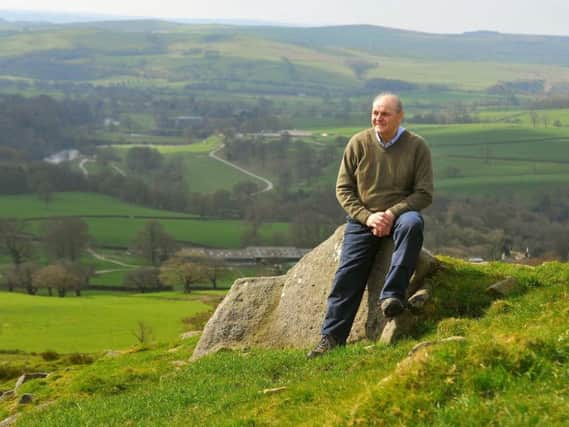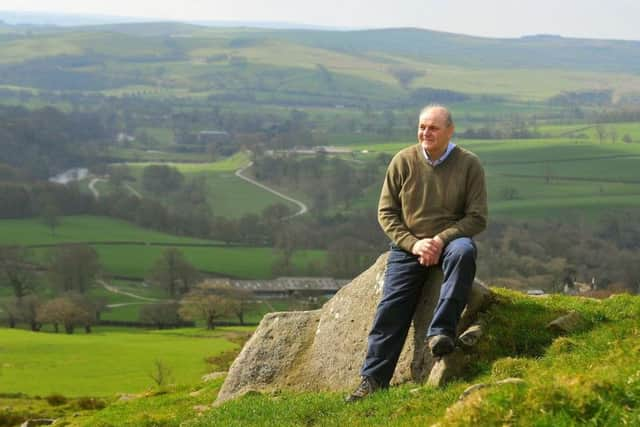No route into Yorkshire Dales farming for next generation


A combination of unaffordable house and land prices, and poor market returns that cannot sustain multiple generations of farming families are blocking routes into agriculture.
The inflated Dales housing market is stopping new generations of farming families from buying their own homes while older generations cannot afford to move off the farm to retire and make way for their successors.
Advertisement
Hide AdAdvertisement
Hide AdPoor returns from hill farming alone have driven families out of the area and when farmland hits the market it is absorbed by farms that expand in pursuit of a better economy of scale.


Steven Crabtree, who runs a suckler herd and sheep on his farm at Bolton Abbey village near Skipton, said the situation means young people from many Dales farming families “are just not interested” in farming where their families have previously done so for generations.
The farmer’s eldest son, Simon, 31, left the Dales for Gloucestershire, where he works as a livestock procurement agent.
“At his age I’d been working on the farm for 15 years,” Mr Crabtree said. “But younger generations don’t want any part of it. We see it all over the Dales. They see how little return their parents get, the inability to get houses and they look for work elsewhere.”
Succession
Advertisement
Hide AdAdvertisement
Hide AdAnthony Bradley, 58, is the fifth generation of his family at Mearbeck Farm near Settle, a legacy stretching back to the 1890s, but he is unsure whether that tradition will be carried on by his children: Jane, 28, James 18, Edward, 16, and Richard, 13.
Mr Bradley, whose daughter is a social worker based in Manchester, said: “James would like to farm but he can see that the farm wouldn’t support more than me. All three of my lads are interested but they have a bit of the same feeling that Jane had, that there’s nothing for them here. House prices are very expensive in the Dales. How can they afford a house on wages this economy pays and how can I afford to move from the farm if they were to take over?”
Mr Bradley, who is a trustee of campaigning group Friends of the Dales and runs sheep and calves as rearing stock on his 90-acre farm, said lamb incomes are modest and so he supplements his income by agricultural contracting, building work and cricket coaching at schools.
Reliance on support payments
Upland grazing farms – which make up the majority of agriculture in the Dales – are heavily reliant on direct payments based on farm size. In the three years to 2018, 91 per cent of the income generated by such farms came from direct payments which have been proposed to be phased out between 2021 and 2028.
Advertisement
Hide AdAdvertisement
Hide AdFarmers have been told to expect to earn support monies through an Environmental Land Management scheme instead and a payments by results trial is under way in Wensleydale.
Both Mr Crabtree and Mr Bradley warn it is vital the transition is well handled to avoid farming livelihoods in the Dales facing a cliff edge.
“Farming in the Dales has seen hard times before but it won’t survive another crisis because there is already an exodus from the land when the job isn’t too bad,” said Mr Crabtree, who is West Riding vice chairman at the National Farmers’ Union.
To adjust to falling direct payments, Mr Bradley said farmers will “stop spending and live on fresh air for a while”.
Advertisement
Hide AdAdvertisement
Hide Ad“We’ll cut back on things like bought-in feed and try to make grass work harder. We’ll get rid of machinery, resources will be shared between farms.
“It remains to be seen though if any of the changes ahead will ease the way for a new generation of farmers in the Dales.”
PROTECTING NUMBERS
There are far fewer farmers in the Yorkshire Dales than in the past, with a succession of milk price crashes over the years forcing many out of dairying and in some cases out of farming in the Dales altogether.
The National Park Authority has said it wants the number of farm holdings within the park’s boundaries to be retained at the very least so that more local farming families are not lost. About 2,700 people are still employed directly in agriculture in the National Park.
Advertisement
Hide AdAdvertisement
Hide AdWriting in The Yorkshire Post last September, park authority chairman Carl Lis warned that “the economy and environment of the Dales will suffer” if the transition to new domestic farming policy post-Brexit is badly managed.
